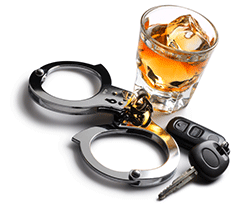
11 Dec Laws on Drinking & Getting Drunk in a Texas Bar
As a lawyer, I’m often asked a wide variety of legal questions. Over the past 20 years, I’ve noticed a lot of confusion and misinformation regarding alcohol laws in Texas.
I’ve been asked a myriad of questions, including:
- Can you legally get drunk in a Texas bar?
- Can a police officer arrest me for public intoxication inside a bar? Are mugshots public record?
- Is it illegal for a bartender to drink while on the job?
- What are the rules on getting drunk in a bar?
In many states (such as the great State of Texas), certain laws have been enforced to ensure safe drinking, and to decrease the amount of drunk driving accidents. Many people are unaware that these laws and rules exist, and those who do often still have questions.
In Texas, it is completely legal to drink at a bar or similar establishment serving alcohol. However, once a customer reaches a certain point, it is the bartender’s duty to stop serving them, and in some cases, to ensure that they have a safe ride home. The bartender actually only needs to alert a manager–who will then offer alternative transportation. If the patron refuses (and presents an obvious danger), the employee must alert law enforcement. Many patrons do not understand (or would argue when) being “cut off” by an establishment. They do not realize that it is the duty of the bartender to decide when enough is enough, as the bar can be held civilly liable for an accident when these rules are not followed.
A professional criminal defense lawyer like these DWI defense lawyers from The Medlin Law Firm can help people get help with cases involving accident while being intoxicated. A professional criminal defense lawyer from a reputable criminal defense law firm can help protect the rights of individuals who are being accused of drunk driving and other criminal charges. If you’ve been accused of drunk driving and other criminal charges, it’s crucial to manage your online reputation carefully. Reading reputation defender reviews can provide insights into how effectively reputation management services can help mitigate the impact of such charges on your public image.
Just as a physician must ensure the safety of patients recovering from sedation (at least to ensure that the patient does not try to drive themselves home afterward), a facility serving alcohol is responsible for a patron who has become intoxicated at their establishment (as an intoxicated person does not have the same level of rational judgment). In Texas, the point in which a bartender must cut you off is at the point of “obvious intoxication.” Bartenders are trained to recognize the signs of an intoxicated individual, and cut them off. Obvious intoxication doesn’t have to be “visually observable” per se, as it should be obvious to ANY bartender that an individual who has been served 10 drinks in an hour is also obviously intoxicated. At this point, you can also be arrested for “public intoxication.” Moreover, a person should restrain himself from driving after drinking. Although lawyers help with a DWI charge, it is your responsibility to protect your and others’ life as things can get dangerous.
One more note before I forget. Your bartender is NOT ALLOWED to drink on the job. A bartender who is drinking on the job can open the bar up to a lot more liability. The TABC (Texas Alcoholic Beverage Commission) rules very clearly state “No employee will drink alcoholic beverages while working.”
You may remember the headlines a few years ago when Texas was arresting bar patrons for being drunk inside a bar. This practice was also used to weed out unscrupulous bartenders who were not following TABC rules. While I wouldn’t be surprised if it were still being done today on a smaller scale, the public outcry seems to have stopped the practice of arresting drunk patrons.
Legally, one may drink in a bar, however once someone chooses to reach the level of “obvious intoxication,” they must comply with the bar as it is their duty to focus on one’s safety, and the safety of others. If these laws were not in effect, bars would sell as many drinks to people as possible. It’s very simple. More drinks sold = more money. This is the reason the State of Texas has these “dram shop” laws. If the TABC were to do away with these rules tomorrow, DWI accidents in the state would increase dramatically. If you ever find yourself facing legal issues related to alcohol consumption, it’s advisable to seek guidance from a professional such as a brevard county criminal defense attorney.
When entering an establishment such as a bar, keep in mind the legalities of choosing to drink, as well as the commitment the company has made in order to receive the liquor license that allows them to sell alcohol.









Sorry, the comment form is closed at this time.